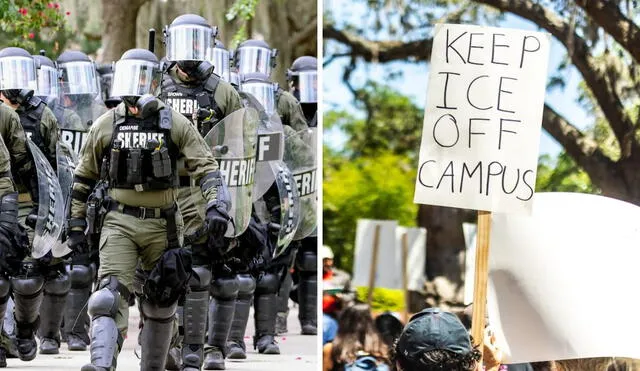Florida universities align with ICE amid migration crackdown
Global study's and immigration advocates worry about the University of Florida in particular due to the agreements they, and other academic institutions have made with ICE.

Some Florida state universities has entered cooperative agreements with the Immigration Customs Enforcement (ICE) as a result of stricter undocumented immigrant policies put forward by state officials and the Trump administration. The University of Florida confirmed its signing of the 287(g) agreement, which allows local police to function as de facto immigration officers.
These has given rise to a period of increased scrutiny on foreign students, especially those associated with elite American universities. In excess of five hundred visas have been cancelled within a single year, making international scholars and pupils especially apprehensive. This has been particularly noted in Florida given the state’s history of protests aimed at such policies.
Scope of the 287(g) agreement
The 287(g) agreement grants local officers the authority to interrogate and arrest people for civil immigration contraventions, as well as to issue and carry out warrants of detention related to immigration offenses. Governor DeSantis also seems to support the policy as part of his efforts to reinforce the security of the state. Currently, there are over 200 active law enforcement agencies in Florida which have enrolled in such agreements, with more than 40 in the queue.
The University of Central Florida and the University of South Florida entered into agreements with ICE. There is an ongoing investigation into whether Florida International University and Atlantic University are in collaboration too. The profound broadening of agreements between universities and the immigration chamber has raised concerns from sociologist and humanitarian groups working for the cause.
Impact on international students
The effects of these agreements are already being felt on university campuses. Four students at the University of Florida have had their visas revoked, and protests have been reported, such as the one that occurred on campus against the deportation of a Colombian student. Protesters say international students are afraid, fearing retaliation due to their immigration status or political activity.
Cases like that of Mahmoud Khalil, who was detained after participating in pro-Palestinian demonstrations at Columbia University, reinforce the perception that these policies specifically target certain student profiles. The current atmosphere of tension and surveillance could severely impact the academic and emotional well-being of those pursuing education in the United States.












